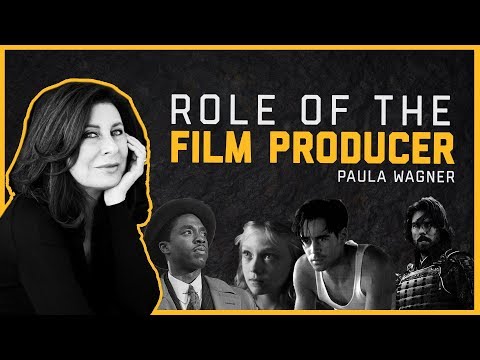Unleash Your Creativity: Film Producer Job Description and Salary

Film Producer Job Description Template
Film Producer Job Description A film producer is a creative and business professional responsible for overseeing the production of a film from start to finish. They play a crucial role in bringing a script to life by coordinating various aspects of the production process. One of the key responsibilities of a film producer is to secure funding for the project. They pitch the film to potential investors, negotiate deals, and develop financial plans to ensure the project stays within budget. Producers also collaborate with directors, screenwriters, and other members of the production team to develop a cohesive vision for the film. Once funding is secured, the producer is responsible for managing the production process. This includes hiring and coordinating the work of cast and crew, securing filming locations, arranging for necessary permits, and overseeing the budget and schedule. Producers also liaise with post-production teams to ensure the film is edited, sound designed, and scored according to the desired vision. In addition to the logistical aspects, film producers also play a creative role in shaping the film. They provide input and feedback during the development of the script, make decisions regarding casting and hiring key crew members, and collaborate with the director to ensure the artistic vision is achieved. Overall, film producers are instrumental in bringing a film to fruition. Their ability to manage budgets, coordinate teams, and make creative decisions allows them to successfully navigate the complex process of filmmaking and deliver a final product that captivates audiences.Film Producer Responsibilities
Film Producer Requirements
How Much Does A Film Producer Make?
Film Producer Salary
| Occupation | Average Salary |
|---|---|
| Film Producer | $70,950 per year |
A film producer is responsible for overseeing the entire process of making a film, from development to distribution. They work closely with directors, writers, and other production staff to ensure the successful completion of a film project. The average salary for a film producer is $70,950 per year. However, it is important to note that salaries can vary depending on factors such as experience, the size of the production, and the success of the film.
Film Producer Salaries by Country
Top Paying Countries for Film Producer
| Country | Average Salary (USD) |
|---|---|
| United States | 120,000 |
| Canada | 95,000 |
| United Kingdom | 85,000 |
| Australia | 80,000 |
| Germany | 75,000 |
A film producer’s salary can vary significantly depending on the country they work in. The table above highlights the top paying countries for film producers. The United States offers the highest average salary at $120,000 per year, followed by Canada with an average of $95,000. The United Kingdom, Australia, and Germany also offer competitive salaries ranging from $75,000 to $85,000. These figures reflect the demand for skilled film producers and the financial strength of the respective film industries in these countries. It’s important to note that salaries may vary based on experience, project budgets, and individual negotiations.
A video on the topic Film Producer
Video Source : Cooke OpticsInterview Questions for Film Producer
1. What is the role of a film producer?
A film producer is responsible for overseeing the entire production process of a film, from conception to distribution. They handle the financial and administrative aspects of the project, hire the cast and crew, manage the budget, coordinate the production schedule, and ensure that the film is completed on time and within budget.
2. How do you select projects to produce?
When selecting projects to produce, I look for a compelling story, strong characters, and a unique or interesting concept. I also consider the market potential and target audience for the film. Additionally, I evaluate the script, director, and other key creative elements to ensure that the project has the potential to be successful.
3. How do you manage the budget of a film production?
To manage the budget of a film production, I create a detailed budget breakdown and allocate funds to different departments and aspects of the film. I closely monitor the expenses throughout the production process, making adjustments as needed to stay within the budget. I also negotiate deals with vendors and suppliers to get the best prices and value for money.
4. How do you handle conflicts or disagreements during the production process?
Conflicts and disagreements are inevitable in any creative process. When they arise, I strive to maintain open communication and foster a collaborative environment. I listen to all parties involved, consider different perspectives, and work towards finding a mutually agreeable solution. If necessary, I may involve mediators or seek professional advice to resolve conflicts.
5. What qualities do you look for in a director or cast members?
In a director, I look for a strong vision, creative talent, and the ability to effectively lead and collaborate with the cast and crew. For cast members, I seek individuals who can bring the characters to life with their acting skills, possess the necessary range and versatility, and have a track record of delivering exceptional performances.
6. How do you ensure the film stays on schedule?
To ensure the film stays on schedule, I create a detailed production timeline and closely monitor the progress of each stage of production. I work closely with the director, department heads, and other key personnel to identify any potential delays or issues and proactively address them. If necessary, I may make adjustments to the schedule or allocate additional resources to keep the production on track.
7. How do you market and promote a film?
Marketing and promotion are crucial to the success of a film. I collaborate with a marketing team to develop a comprehensive marketing strategy that includes advertising, publicity, social media campaigns, and targeted outreach to the film’s target audience. I also ensure that the film is screened at film festivals and arrange press events and interviews to generate buzz and awareness.
8. How do you handle distribution and release of a film?
I work closely with distributors to secure the best distribution deals for the film. This involves negotiating contracts and terms, strategizing the release plan, and coordinating the distribution logistics. I ensure that the film reaches its intended audience through various platforms, such as theaters, streaming services, and home video releases.
9. How do you stay updated with the latest trends and developments in the film industry?
I stay updated with the latest trends and developments in the film industry by regularly attending industry events, film festivals, and conferences. I also read industry publications, follow industry news and updates, and network with other professionals in the field. Additionally, I actively seek out new talent and emerging filmmakers to stay informed about innovative approaches and ideas.
10. How do you measure the success of a film?
The success of a film can be measured through various factors, including box office performance, critical acclaim, audience reception, awards and nominations, and long-term profitability. It’s important to set specific goals and benchmarks for each film project and evaluate its performance against those objectives. Ultimately, the impact and longevity of a film in the industry can also be indicative of its success.






